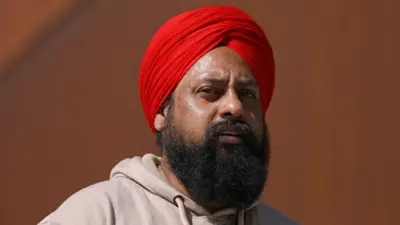We've updated our Privacy and Cookies Policy
We've made some important changes to our Privacy and Cookies Policy and we want you to know what this means for you and your data.
F├®licien Kabuga: Rwanda genocide suspect unfit to stand trial, UN court rules
Image source, EPA
An 88-year-old man accused of being a major financier of the 1994 Rwandan genocide is unfit to stand trial, a UN war crimes court has ruled.
F├®licien Kabuga had "severe dementia", according to medical experts.
He was arrested in Paris in 2020 after evading capture for 26 years.
Said to have been Rwandan's richest man at the time, he is alleged to have financed ethnic Hutu militias who slaughtered about 800,000 Tutsis and moderate Hutus. He denies the charges.
The head of Rwandan genocide survivors' association Ibuka told ┤¾¤¾┤½├¢ Great Lakes he was "saddened" by the judges' decision.
"As survivors, we felt relief when he was arrested, thinking that we were going to finally get justice," said Philbert Gakwenzire.
He said he doubted whether Mr Kabuga really was unfit to stand trial and that the association was thinking of "ways to take this forward".
This is the first time a court has given such a ruling in a decades-long campaign to bring Rwandan genocide suspects to justice.
In their ruling, judges at a UN war crimes court in The Hague said Mr Kabuga was "unfit to participate meaningfully in his trial and is very unlikely to regain fitness in the future". One of the four judges disagreed with the majority decision.
The judges proposed an alternative legal procedure that "resembles a trial as closely as possible, but without the possibility of a conviction".
The court had paused his trial in March to allow for his health to be assessed. According to court documents, he is 88, although there is some dispute about his precise age.
It is alleged that Mr Kabuga used his large fortune, made in the 1970s tea trade, to buy weapons used to arm the Hutu death squads.
The wealthy businessman is also accused of using the radio station he set up to urge Hutus to kill Tutsis, fuelling the genocide by broadcasting inflammatory hate speech.
French investigators tracked him down to an apartment in Paris where he had been living under a false identity.
The United States had offered a reward of $5m (£4.1m) for information leading to his arrest.
Top Stories
More to explore
Most read
Content is not available








